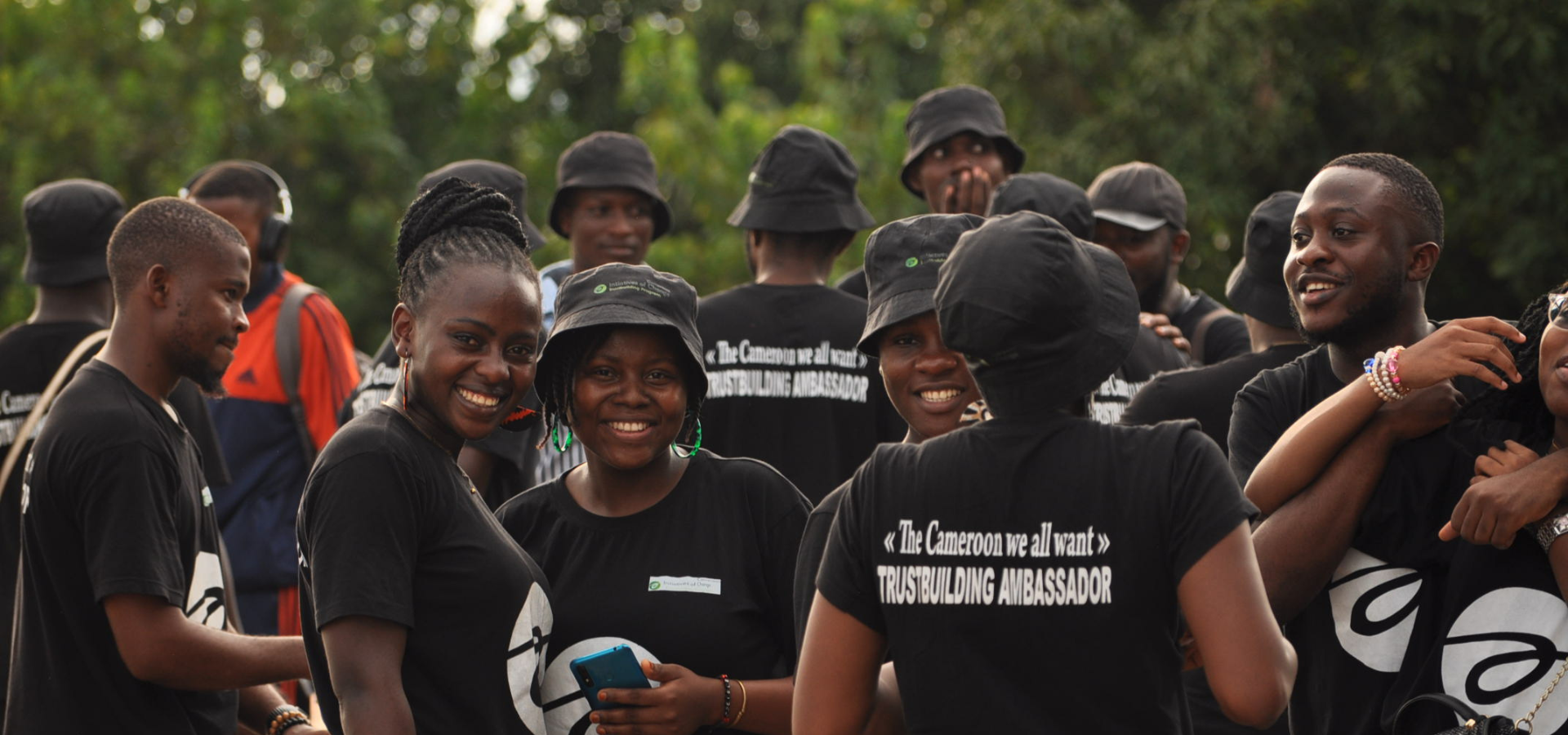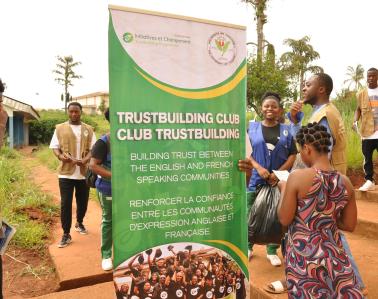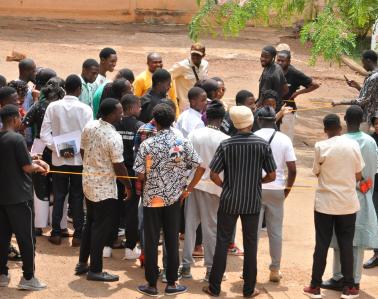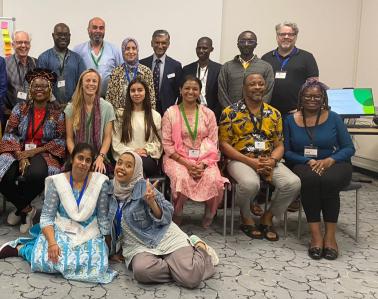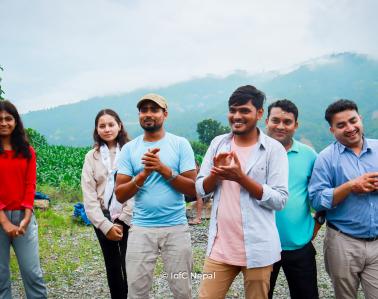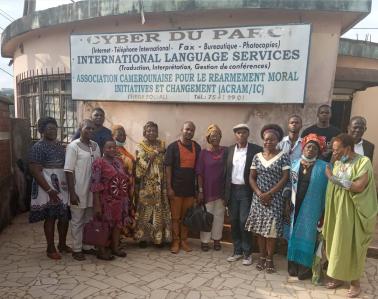Cameroon
In Cameroon, decades of tension between the country’s Anglophone and Francophone communities have eroded trust, fueled mistrust, and sparked violent outbreaks.
Since early 2023, our trustbuilding work has been addressing this challenge directly by creating safe, structured spaces for dialogue where understanding can replace division, and where people can begin to work together for a shared future.
Through this project and our partnership with university institutions, we train Trustbuilding Ambassadors, young, community-rooted leaders, by equipping them with the skills, mindset, and networks to lead reconciliation and peace efforts long after our project ends.
Our activities and proven results
Our work combines dialogue, training, and community-led action:
- Facilitated dialogue circles – safe, inclusive forums where participants from both linguistic groups openly discuss sensitive issues, dismantle prejudice, and rebuild trust.
- Leadership and peace skills training – residential retreats covering conflict resolution, intercultural communication, active listening, ethical leadership, project management, and problem solving.
- Community action initiatives – small-scale, locally led projects promoting intergenerational dialogue, peaceful coexistence, and collaborative problem solving.
- Mentorship and alums network – sustained support for Ambassadors to continue influencing their communities.
- Sports: sports are used to bring opposing groups together to bridge divides.
- Trustbuilding Cafes: spaces facilitated by our Trustbuilding Ambassadors to spread the culture of trust and integration across university campuses.
Impact to date
+120
Trustbuilding Ambassadors trained
1,000
students directly reached
- Safe dialogue spaces have been established in multiple conflict-affected communities.
- Tangible mindset shifts documented through personal testimonies — from prejudice to collaboration.
- Participants are influencing local peacebuilding outcomes by engaging divided groups in non-violent options.
Transformation in Action
“Before joining, I was hesitant to speak in public or address sensitive issues. Now, I lead sessions with young people, women and community leaders and have launched initiatives for intergenerational dialogue. This project has made me a true actor for change.”
— Meno Lydie, University of Yaoundé I
Breaking barriers
“At our first encounter, I sat with Francophones and realised they were no different. Despite the language barrier, we shared openly. I even persuaded separatist fighters to pursue peace. That was a miracle for me.”
Empowering leaders for peace
“This project has given me confidence, discipline, and strong leadership skills. I now collaborate more effectively and actively contribute to solving community problems.”
— Nkounmboure Abraham Jonathan, University of Yaoundé II
These stories are backed by dozens of similar examples, demonstrating both human transformation and community-level change.
Why support our work now
Cameroon’s political and social fractures will not heal without sustained, locally led engagement.
The Trustbuilding project has shown it can transform attitudes, bridge divides, and create a multiplier effect through its trained Ambassadors.
With additional support, we can:
- Expand to more regions affected by the Anglophone-Francophone divide. The goal is to expand the project to 10 universities across the country.
- Train at least 50 additional Ambassadors over the next two years.
- Launch cross-regional community projects as models for national replication.
- Strengthen our monitoring and evaluation to track and prove long-term impact, supporting policy-level advocacy.
Learn more about Trustbuilding in Cameroon
Herman Fabrice Beyene
Project Manager and President of IofC Cameroon Council
Marienne Makoudem Tene
Project Coordinator and Public Relations
Valère Olinga
Fundraising and Public Relations
Simon Magloire Ntonga
Communications
Benett Luciole Deloko
Community Management
Lea Ines Kameni
Evaluation
Guy Onguene
Volunteer
Deschanel: “Dreaming alone is only a dream; dreaming together becomes reality. I choose to be the example of the change I want to see in Cameroon.”
Yannick: “Hatred and fear are humanity’s worst enemies. Through peace circles, I’m helping young people, especially street children, become agents of change.”
Anaba: “In my role as a traditional chief, I apply lessons learned here. Honesty has cost me clients, but I am at peace with my choices.”
